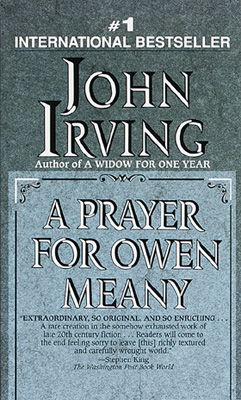William was splitting wood. A thin but broad-shouldered twelve-year-old he swung the axe deftly. It whistled through the air until its blade thunked deeply into the end of the section of log propped between the roots of an up-turned stump. Ice crackled underfoot as he let go of the helve and moved to place wooden wedges in the split that he'd made. He pulled on his mittens and took a round hickory mallet that hung from a convenient root and with one hand on the axe helve, tapped the wedges in until the widened crack released the blade. He hung the axe in the roots where the mallet had been, to avoid dulling the edge.
Tapping the wedges deeper he heard the crackle and groan of the log being torn apart until finally it fell in two pieces. He carried them to the neat stack of splits near the small, neat, log and clapboard house and added them to the top. Then he went to another stack and got another unsplit log.
As he walked back to the stump, a sudden shift in the cold breeze blew the smoke from the house chimney to swirl around him. The smoke of logs he had split earlier in the year was mixed wih the scent of pumpkin, apples and the greasy odor of a roasting bird. The smell of the pumpkin made him ill. As hungry as he was, he would be happy if he never had to taste pumpkin again ... ever.
Pumpkins were easy to grow, and dry. With corn and the occasional small gamebirds, they were the staples of the family's winter diet. Pumpkin was used in everything. It was stewed, roasted, baked. It was added to bread, thickened gravy. The taste of pumpkin was the taste of winter.
William trudged back to the stump with the log and settled it into the embrace of the roots. Twenty more to do. He took off the mittens and grabbed the axe helve.
After the last split for the day was put on the pile, he went to the door, pulled off his mittens and pushed the sheet of bark hanging from leather hinges aside. It was slightly warmer inside the house. It was a common house for the time. made of 18-foot logs on the longest dimension. The beds were platforms extending from the walls, three down below and two above in a loft reached by a ladder. The floor on the first level was compacted earth with flat stones near the fireplace..
A fire blazed merrily in the stone fireplace that took up most of one wall, but the heat it cast did not reach the far corners. A mound of blankets on a bed built into one of the corners, and only the occasional fog of his breath showed that William's grandfather lay underneath them, bundled from the cold.
His sister Elizabeth stood near the fire stirring the contents of a blackened iron pot suspended from an iron crane over one side of the fire. The thick plop of its boiling suggested that it was the pudding made from corn meal and dried pumpkin. His mother sat on a low stool tending the spiders, the skillets and pots with legs that sat in or near the blaze. Root vegetables were boiling in the large cauldron, Hanging by a cord over the middle of the fire was the goose that his father had shot with the old blunderbuss a few days ago. The lower half was roasted and partially blackened by the smoke, the top half was still raw but smudged with the soot.
Mother reached over and gave the bird a sharp twist. The cord twisted up, then untwisted and twisted the other way, rotating the bird over the fire to cook it as evenly as possible. An apple pie made from the last of the fresh undried fruit and a bit of maple sugar sent its distinctive aroma through the cracks in the metal box built into the chimney that served as an oven.
William moved close to the fire to thaw out. After a minute or two, his mother unhooked the goose from the cord, turned it upside down and hooked it with the raw side down. "Set up the table, Will," she said.
William got the trestles from a corner. He set the trestles on either side of the room, and got the long wooden benches and put them in place. The long board leant against the wall. He tilted it down and walked backward to drop it gently on the supports. Six deep hollows had been carved in the upper surface of the tabletop. With the board in place, there was just enough room at either end for a person to squeeze between the end of the table and the wall.
Then he placed six leather tankards on the table and four wooden cups on the sideboard, a simple plank attached to the wall. "Shall I get the cider?" he asked. His mother nodded. He went to the cupboard for the earthenware jug and put it on the sideboard.
"Why don't you go meet your father at the gate," she said. He put the mittens back on.
He opened the gate for his father's wagon and waited, stamping his feet to keep them from going numb. Finally he heard the rumble of wheels. As the cart appeared, William heaved a sigh. His father had brought Uncle Eb, his new wife Judith, two children from a previous marriage (Aunt Sarah had died of influenza four years ago) and Uncle Josiah. That meant there were six for the table, and he would be standing again this year.
He closed the gate after his father drove through, then ran to catch the wagon and jumped onto the back to ride the quarter mile to the house. William unhitched the horses and took them into the barn, rubbed them down and gave them some hay with a sprinkling of oats. "For your own Thanksgiving," he told them.
Inside, preparations were nearly done. The pie was cooling on the sideboard, bowls of boiled vegetables sat steaming on the table, some plates of pickled cabbage and fruit preserves, a loaf of bread and a pan of biscuits.
Greetings were shared, the coats hung up, and hands and rears warmed at the fire. The adults took their places at the benches. They all took knives, spoons and napkins out of their pockets. William, as the eldest child, poured the cider, then took his place with the other children standing at the sideboard. Uncle Josiah, a lay preacher, whose currently unmarried status was a source of concern to all who knew him, said the blessing and the food began to make its rounds
The bird was served in a shallow wooden bowl, which was passed along the table so that each adult could tear off the portion they wanted. The remnants were passed to William who took what he felt was fair and passed it down. The same process continued with all the dishes. The adults loaded the trough in front of them with food, and passed what was left to the children, who shared the scraps.
There wasn't much conversation. One didn't talk much while eating and the children were only to talk when spoken to ... and they weren't. An occasional gesture from an adult for William to refill a tankard was the sum of the communication between table and sideboard. Everyone ate with their knives and fingers. Those who had spoons used them for the small scraps.
The room was quiet except for the sound of chewing, drinking, an occasional fart or belch, and, now and then a clank as someone spat a piece of birdshot into a dish set by for that purpose.
At the end of the meal the pie was served. As William suspected, the plate was emptied before being passed to the children. Indian pudding was ladled into small porringers, and William greedily used more than his fair share of maple syrup to try to mask the taste of pumpkin.
The adults finished and the children were chased out into the snow or up to the loft, while the adults conversed.
And then it was over. His father, half-snoozing indicated that William had the task of driving the guests home. He went to the barn and hitched up the horses. Uncles and aunts and cousins piled into the bed of the wagon. He snapped the reins and they were off on the long cold drive to the two neighboring farms.
As he drove home in the moonlight, William wondered when he would get his place at the table.


